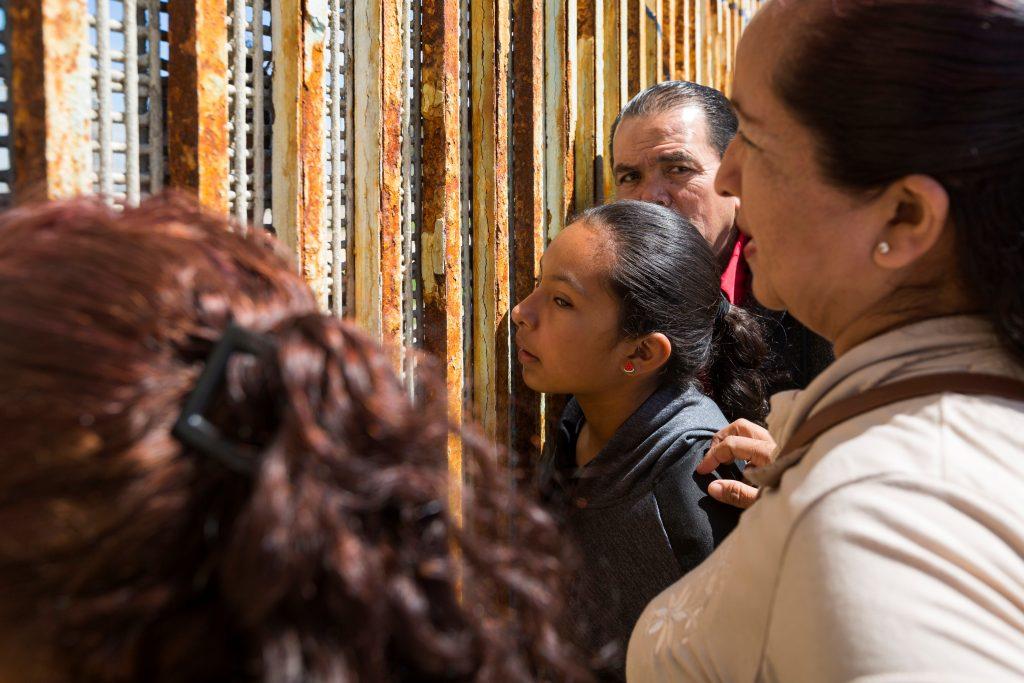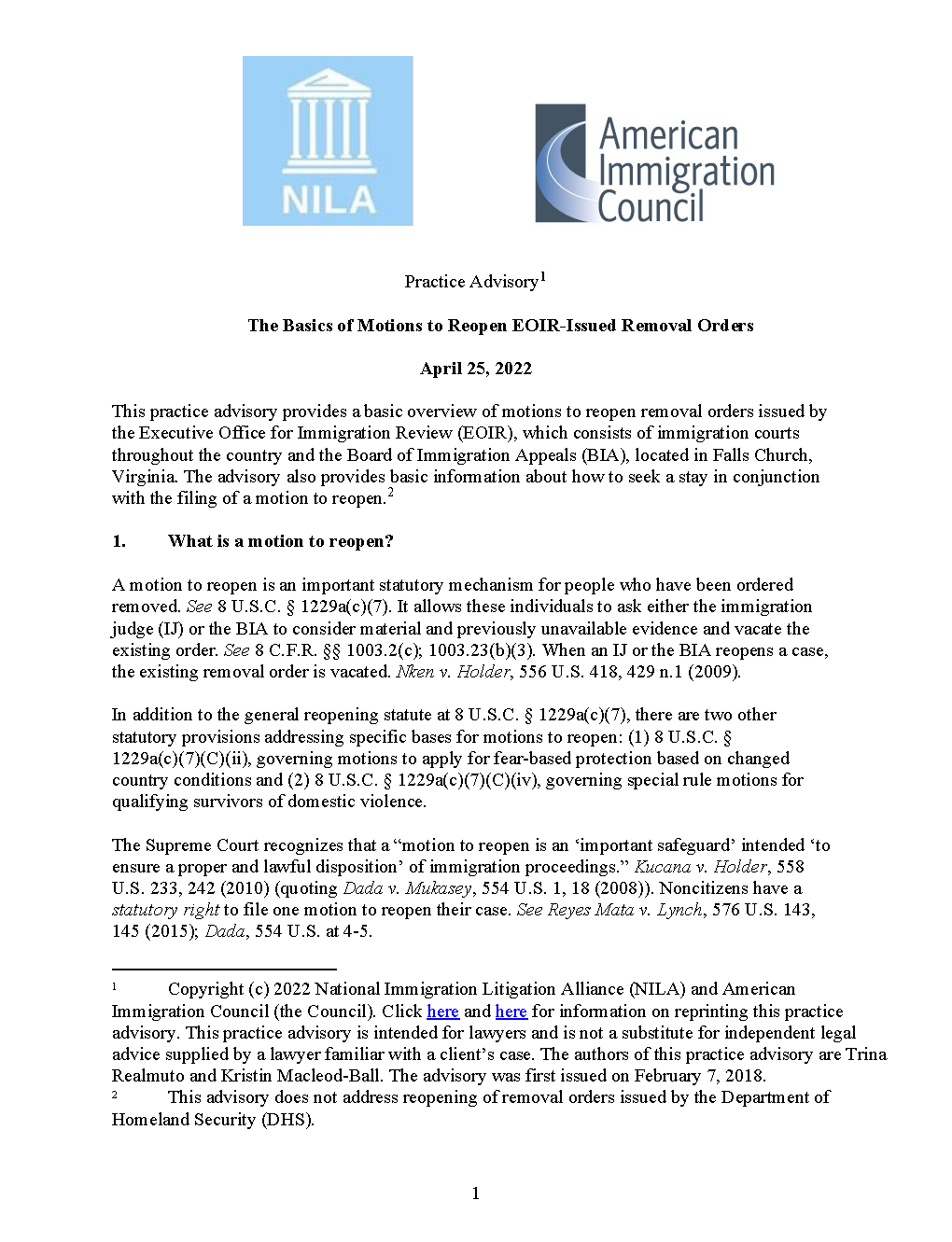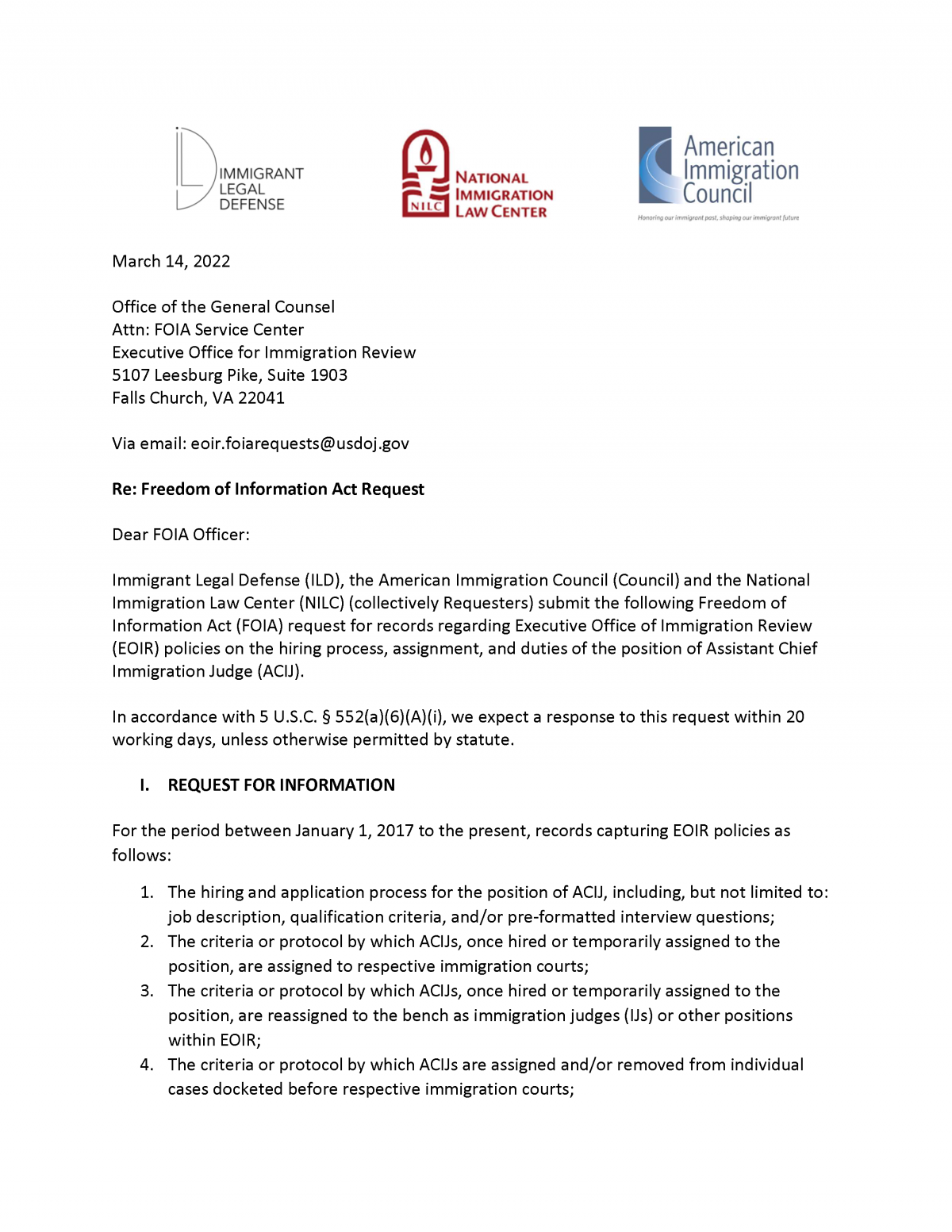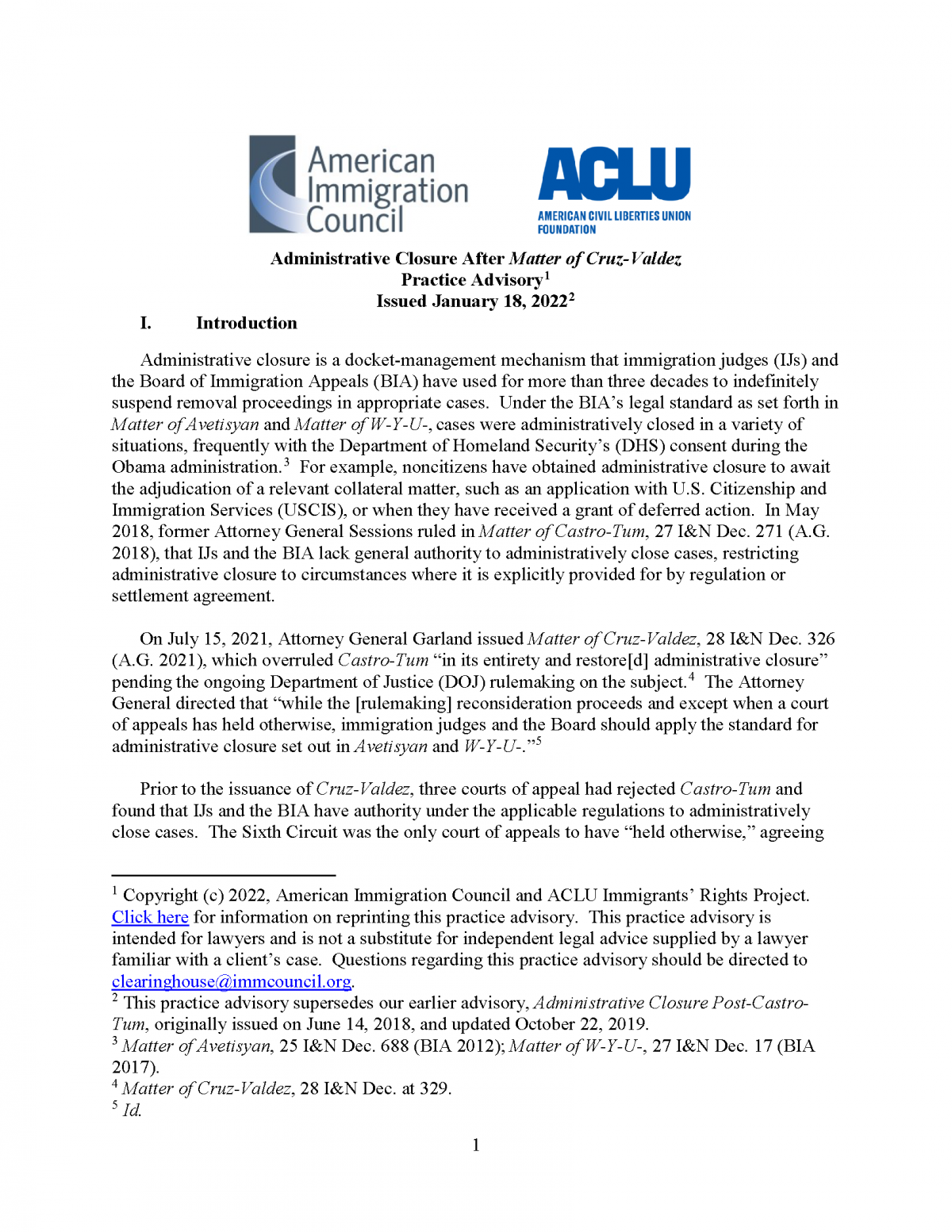The enforcement of immigration laws is a complex and hotly-debated topic. Learn more about the costs of immigration enforcement and the ways in which the U.S. can enforce our immigration laws humanely and in a manner that ensures due process.
Recent Features

Immigrants in immigration court do not have a right to government-appointed counsel. The lack of legal representation has a profound impact on immigrants’ outcomes in removal proceedings.

Backlogs and delays benefit neither immigrants nor the government—keeping those with valid claims in limbo and often in detention, delaying removal of those without valid claims, and calling into question the integrity of the immigration justice system.
























